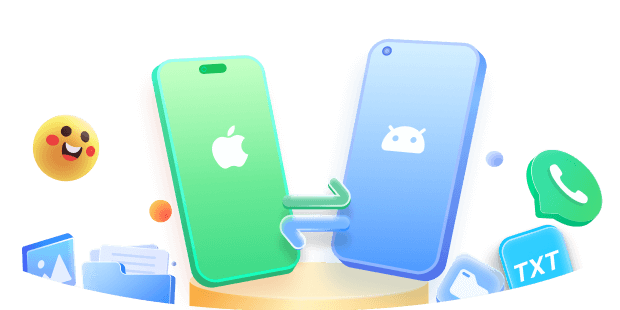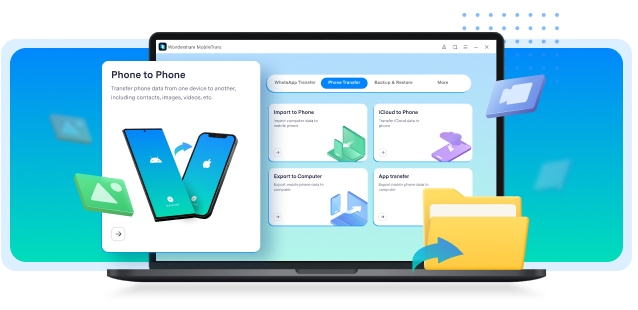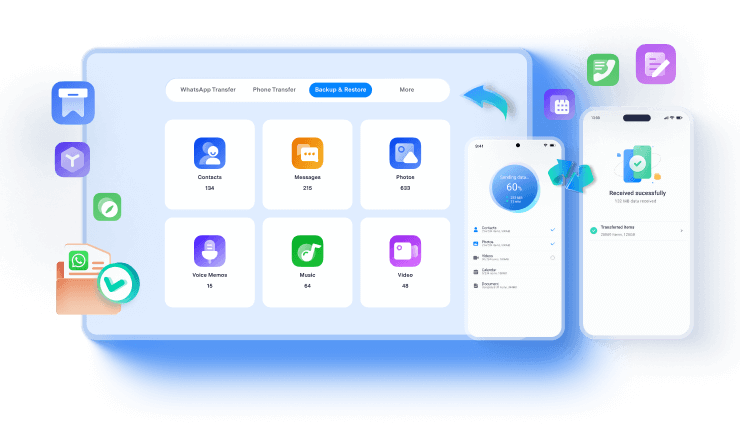While the iPhone is one of the best smartphones in the market, Windows PC still rules in the computer space. With the best camera setup, you can take incredible photos on your iPhone. In addition to top-notch security features and strong encryption to keep photos private and secure on an iPhone. The latest iPhone 17 with iOS 26 further enhances these features, offering upgraded photo quality and smarter privacy controls. However, it is still a good practice to create backups of your photos.
But if you have a Windows PC and want to transfer photos from an iPhone, things get a little tricky. Although it is possible to send pictures from an iPhone to a PC via Bluetooth, many users encounter issues with this method. If you are one of them, do not worry we got you back. Here in this article, we are providing step by step guide on how to send photos from your iPhone to your PC via Bluetooth easily.
In this article
Can You Transfer Photos From iPhone to PC via Bluetooth?
Bluetooth is a wireless technology that allows devices to communicate with each other without cables or wires. It uses short-range radio frequency to connect within the specified distance. You can transfer images, music, and other small files across devices.
Both iPhones and PCs support Bluetooth technology, so it is possible to transfer photos between two devices. However, while there are many benefits to using Bluetooth, there are also many drawbacks.
Advantages:
- Bluetooth is a wireless technology that allows you to share files without cable connections.
- Bluetooth technology is widely available across every device. So, you can exchange files with almost any device while on the more.
- Bluetooth file transfer is easy to use and does not require major technological knowledge. Anyone with a basic understanding of smartphones can easily perform the process.
Disadvantages:
- When it comes to wireless file transfers over Bluetooth, people are often concerned about speed. Bluetooth transfers data at a slower rate due to its low power consumption.
- Even though Bluetooth has evolved over the years, the most recent version, Bluetooth 6, has been released. However, many people are concerned about the range of Bluetooth technology, which can reach a few hundred meters.
- Bluetooth uses radio frequencies, which sometimes let hackers take information. As a result, it is commonly recommended to avoid using Bluetooth in public places.
How to Transfer Photos from iPhone to Computer Using Bluetooth?
Now that we established both iPhone and Windows PCs support Bluetooth technology and can transfer files easily. So, the following are the steps to quickly transfer photos from your iPhone to your PC via Bluetooth:
Step 1: First, launch the “Settings” app on your iPhone, then select “Bluetooth” in the settings list. Now, turn on the Bluetooth toggle.

Step 2: Next, click the "Windows icon" and select "Settings" on your PC. On the left panel, select "Bluetooth and devices" and then click "Add device".

Step 3: On the new Add a device pop-up window, select “Bluetooth” and wait for your PC to scan for nearby Bluetooth devices.
Step 4: After the scan, click on your iPhone and select “Pair”. Enter the authorization code from your iPhone to confirm the pairing.
Step 5: Now your iPhone and PC have established a Bluetooth connection. Open the Photos app on your iPhone and select the photos you want to send to your PC. Tap on the “Send using Bluetooth” option.
All the transferred photos from your iPhone will be saved in a Bluetooth folder on your PC.
How to send photos from iPhone to PC via MobileTrans?
Although transferring photos through Bluetooth is a flexible option, it also comes with some of its drawbacks, including slow transfer speed. Especially when you are transferring large files or multiple files at the same time, Bluetooth tends to struggle and take time. On the other hand, transferring photos over a cable connection becomes a faster and more efficient solution.
So how do you achieve that with iPhone and PC? Thankfully, Wondershare MobileTrans makes it possible by quickly establishing compatibility. You can quickly transfer photos from your iPhone to your PC using MobileTrans in a matter of minutes using a cable connection. However, you can do so in a couple of ways.
Wondershare MobileTrans
Transfer and Back Up Photos to PC Easily
- • No data loss. No data leaks.
- • Support various data, including files, photos, videos, apps, contacts, etc.
- • Compatible with thousands of device types acorss Android and iOS.

 4.5/5 Excellent
4.5/5 ExcellentMethod 1: Using MobileTrans - Phone Transfer feature
Step 1: First, download, install, and launch the Mobiletrans software to your PC.
Step 2: Connect your iPhone to your PC using a USB cable. The application will then detect your iPhone.
Step 3: Select the “Phone Transfer” on the main screen and click the “Export to Computer” option.
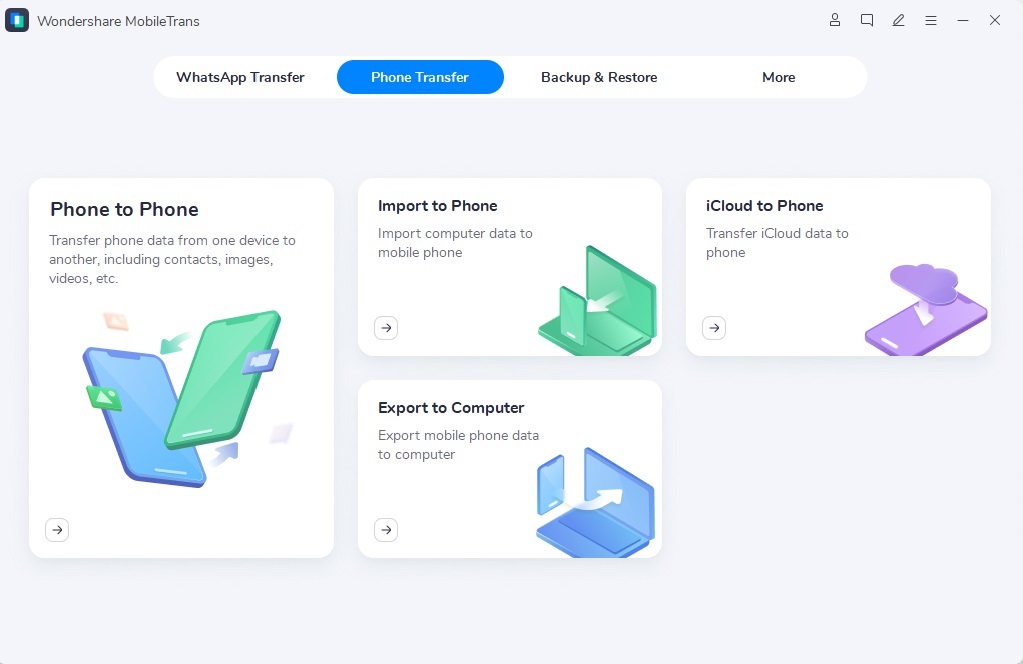
Step 4: Next, select the “Photos” option on the left side panel and choose all the photos you want to transfer from your iPhone.
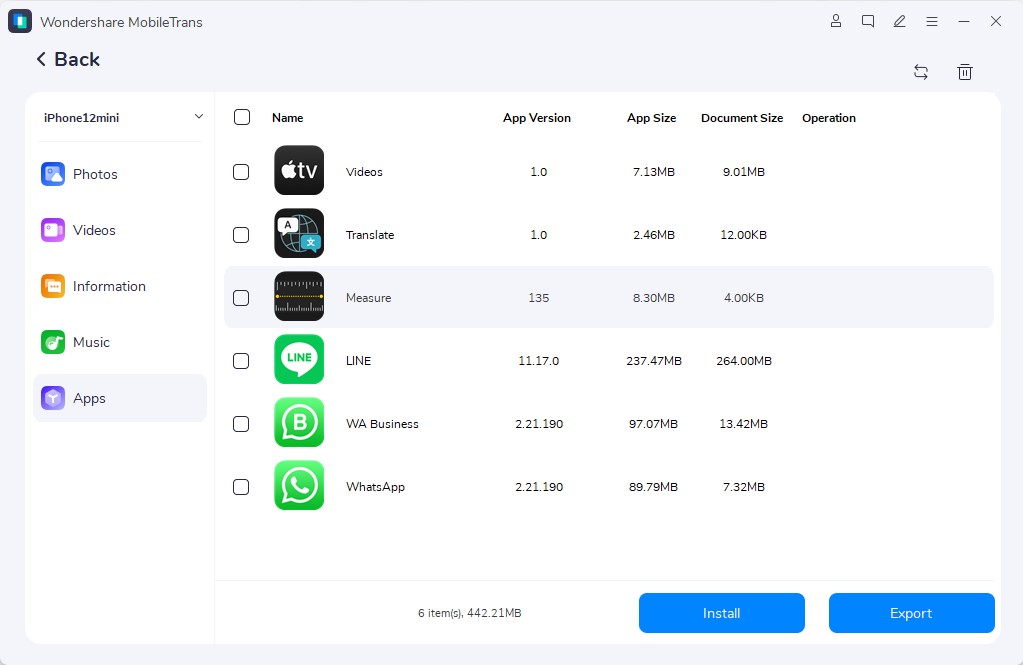
Step 5: Lastly, select the “Export” button at the bottom to begin the transfer.
Method 2: Using MobileTrans - Backup & Restore feature
Step 1: First, download, install, and launch the Mobiletrans software to your PC.
Step 2: Connect your iPhone to your PC using a USB cable. The application will then detect your iPhone.
Step 3: Select the “Backup & Restore” on the main screen and click the “Phone Backup & Restore” option.
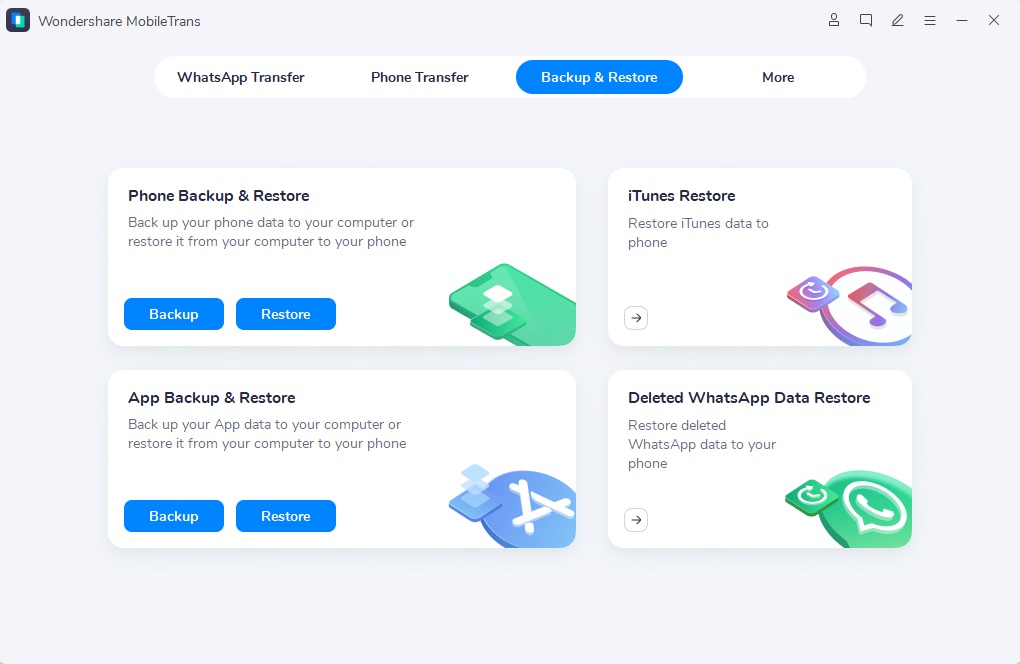
Step 4: On the next screen, your iPhone and Computer will be automatically detected. Select the “Photos” option with any other data you want to transfer.
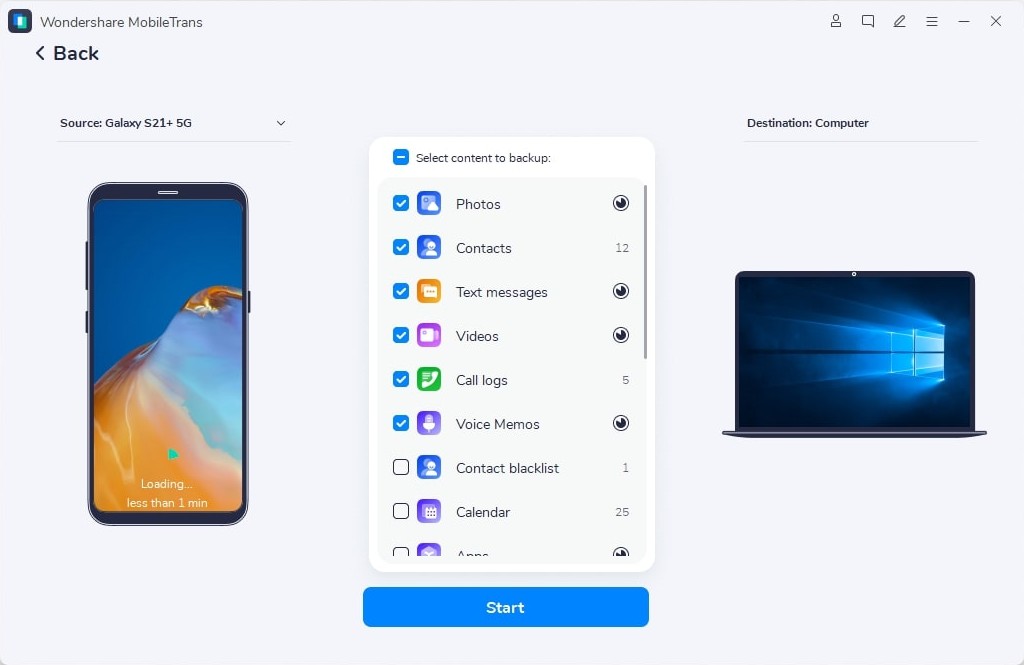
Step 5: Finally, click on the "Start" button. All your selected files will be backed up to the PC.

 4.5/5 Excellent
4.5/5 ExcellentTips to transfer pictures via Bluetooth to iPhone
Transfering pictures over Bluetooth to an iPhone can be cumbersome sometimes. Follow the below tips to make sure the process is effortless without any hiccups:
- Check the device and iPhone have Bluetooth option.
- Make sure both devices have Bluetooth turned on and are discoverable before initiating connections
- Check if both devices are paired with each other via Bluetooth.
- Check that both devices support file transfer over Bluetooth.
- Keep the devices close to each other during the transfer process for better connectivity.
- Select the photos you want to transfer to your iPhone and share them using the Bluetooth option.
- Accept the transferred photo on the receiving iPhone.
- Do not share large-size photos over Bluetooth.
- Ensure not to send multiple pictures at the same time.
- Unpair the Bluetooth connection by turning off Bluetooth on both devices.
Conclusion
Transferring files over Bluetooth from your iPhone to your PC has many pros, including wireless transfer. But it also has many drawbacks, such as limited range and file size. However, now you know how to transfer photos from your iPhone to your PC without cables. Use Bluetooth to transfer a small and limited number of files. If you are unable to pair your iPhone and PC via Bluetooth or you have a lot of photos to transfer. You can also consider using Wondershare MobileTrans to transfer files. It is easy to use, quick, and has many more features.
FAQ
-
Does the iPhone have Bluetooth file transfer?
While older iPhones did not support file transfer over Bluetooth, the new models do support it, but for a few types of files only. Yes, Bluetooth on iPhone supports file transfer that includes, photos. -
Can I AirDrop from an iPhone to a PC?
AirDrop is a file transfer feature only available on Apple devices such as iPhone, iPad, MacBook, and iMac. Unfortunately, AirDrop is not available for PCs. Hence, you cannot AirDrop to your PC from your iPhone. -
What is the easiest way to transfer photos from an iPhone to a PC?
You can transfer photos from your iPhone to your PC in multiple ways. However, the easiest way will depend on your preferences, such as how many files, file size, and how much time to transfer. If you want to transfer a couple of small-size photos, then transfer via Bluetooth can be the easiest way. On the other hand, if you want to transfer multiple, large-size pictures from your iPhone to your PC, it is better to consider third-party apps such as MobileTrans.
